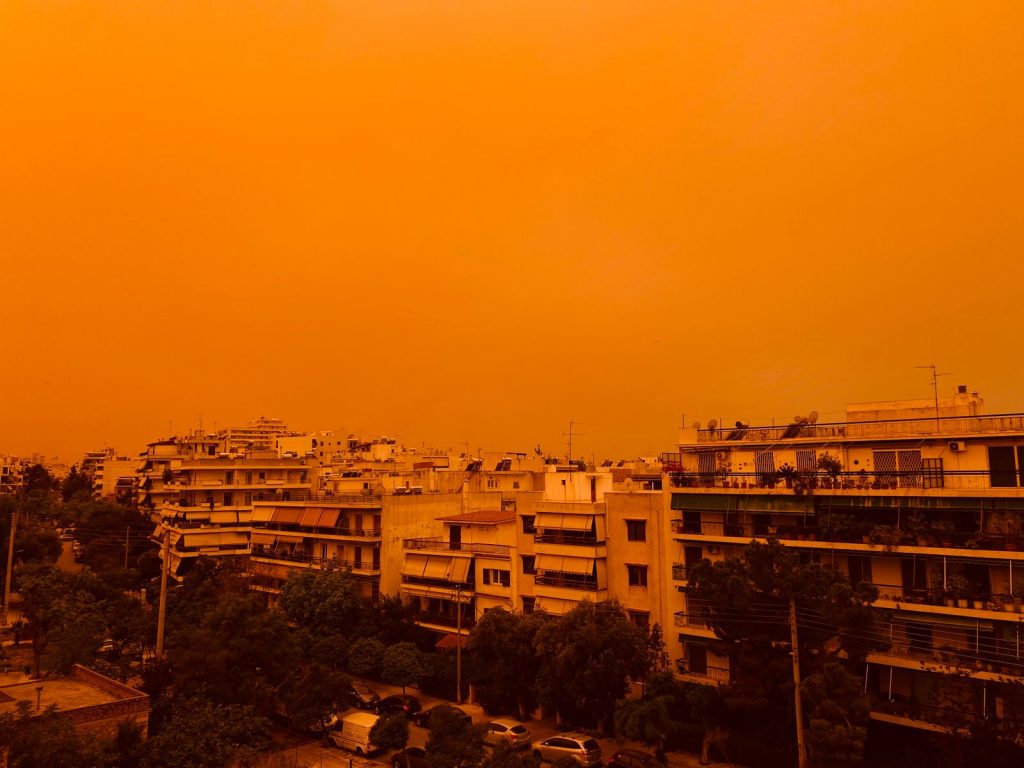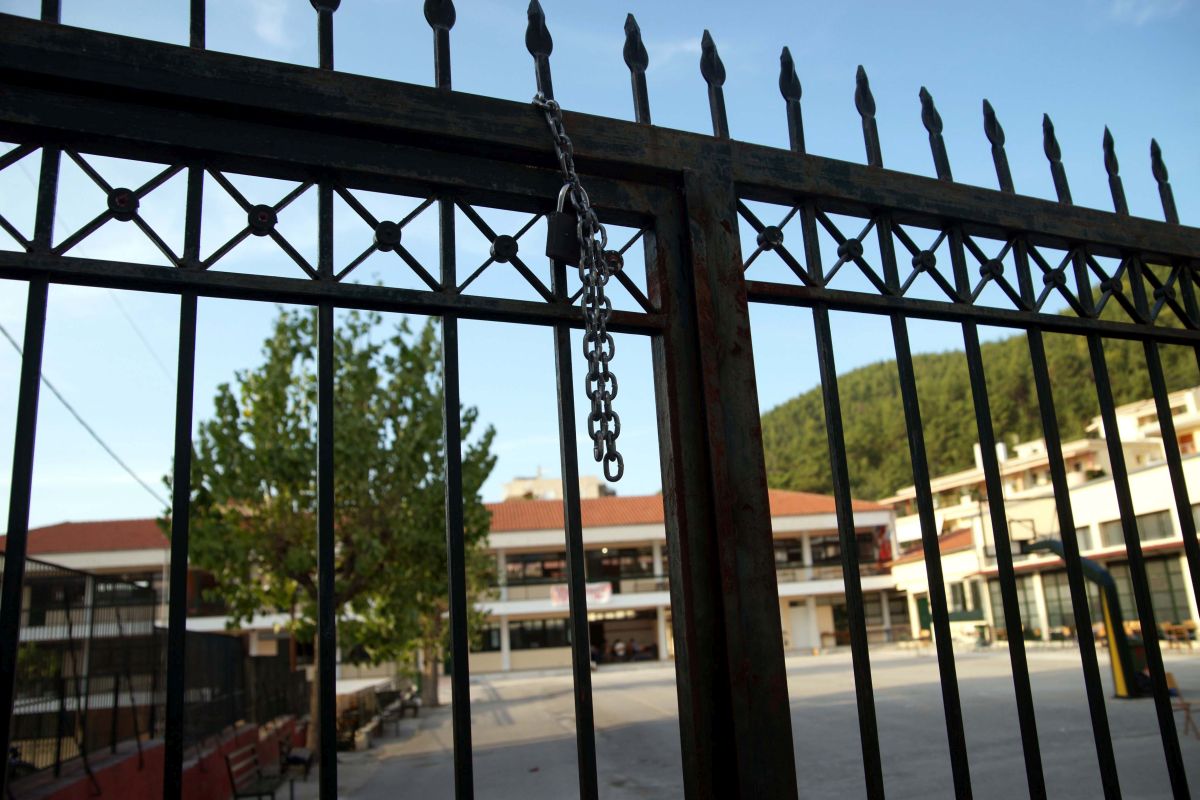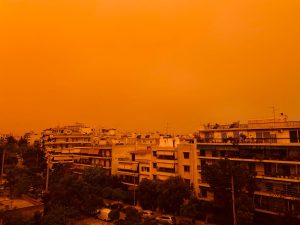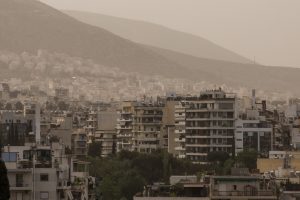In light of the next wave of African dust forecasted to envelope Greece over the next week, the Greek Ministry of Health issued a circular detailing the circumstances under which schools should be closed for health reasons.
According to the circular, particle concentrations must surpass 150 mg/m3 in order for schools to be closed and teaching to be suspended. The decision will be made on a region level and based upon official air quality reasons by the Ministry of Environment.
That being said, the country’s National Public Health Organization (EODY) will monitor developments closely and may recommend modifications to school programs and excursions even under the 150 mg/m3 limit.
In the meantime, schools should consider limiting outdoor activities and moving physical education activities indoors wherever possible.
Additionally, students are generally advised to avoid strenuous physical activity, such as outdoor football matches, and other competitive outdoor sports.
Teachers and schools have also been advised to keep school windows and doors closed as much as possible, which may prove to be problematic as the high dust concentrations will be accompanied by a heat wave, and Greek public schools do not have air conditioning systems.
In a previous announcement, health authorities in Greece warned individuals with high-risk conditions, including heart and respiratory ailments to remain indoors and wear masks.
Possible symptoms from exposure to African dust include eye irritation (itching, watery eyes, tears), irritation of the upper and lower respiratory system (runny nose, sneezing, sore throat, difficulty breathing or shortness of breath, persistent cough, chest pain), allergic reactions (redness of the skin, itching).






